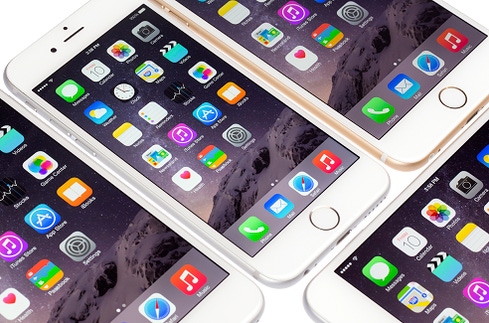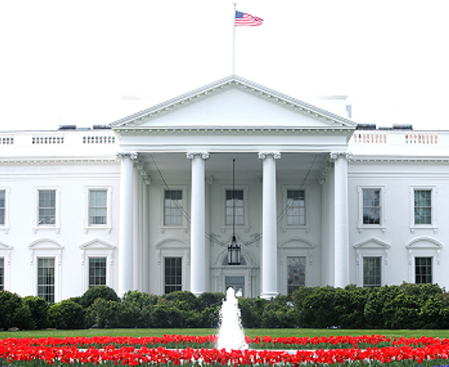With a Tweet, the founder of WhiteHat Security may have nudged Google's CEO to take a side, and the rest of the world is beginning to do the same.


Where 2016 US Presidential Contenders Stand On Tech Issues
Where 2016 US Presidential Contenders Stand On Tech Issues (Click image for larger view and slideshow.)
It may have been WhiteHat Security Founder Jeremiah Grossman who, with a Twitter nudge, encouraged Google CEO Sundar Pichai to express his position on the legal struggle between Apple and the FBI. The latter wants Apple help it to gain access to the iPhone of Syed Farook, who in December killed 14 colleagues at a holiday party in San Bernardino, Calif.
"Today would be the perfect day for Sundar Pichai (Google, CEO) to back up Tim Cook (Apple, CEO)," Grossman Tweeted early in the morning on Wednesday, Feb. 17.
An hour later, the Tweet got a boost from Edward Snowden, who re-Tweeted and added: "This is the most important tech case in a decade. Silence means @google picked a side, but it's not the public's."
At last count, Grossman's Tweet was re-Tweeted over 1,000 times and Snowden's was re-Tweeted more than 8,800 times.
About eight hours later, Pichai responded with what he later happily described as his first-ever "tweet storm":
"1/5 Important post by @tim_cook," Pichai began, referring to a message Apple posted to its site Feb. 16. "Forcing companies to enable hacking could compromise users' privacy
"2/5 We know that law enforcement and intelligence agencies face significant challenges in protecting the public against crime and terrorism
"3/5 We build secure products to keep your information safe and we give law enforcement access to data based on valid legal orders
"4/5 But that's wholly different than requiring companies to enable hacking of customer devices & data. Could be a troubling precedent
"5/5 Looking forward to a thoughtful and open discussion on this important issue"
Cook also framed the issue as one for public discussion, adding, "We want our customers and people around the country to understand what is at stake."
Slowly, that discussion, or at least a staking out of sides, is beginning to happen.
Whatsapp CEO Jan Koum posted to Facebook: "I have always admired Tim Cook for his stance on privacy and Apple's efforts to protect user data and couldn't agree more with everything said in their Customer Letter today. We must not allow this dangerous precedent to be set. Today our freedom and our liberty is at stake."
Mark Surman, executive director of the Mozilla Foundation, wrote and Tweeted a long blog post in support of Apple and Cook, describing the Internet as an important public resources and encryption as the key to a healthy Internet.
"Encryption isn't a luxury -- it's a necessity," wrote Surman.
Not everyone fully understands the issue, Surman continued, explaining that for this reason Mozilla is starting a global public education campaign:
As more and more governments propose tactics like backdoors, technology alone will not be enough. We will also need to get Mozilla's community -- and the broader public -- involved. ... If we can educate millions of Internet users about the basics of encryption and its connection to our everyday lives, we'll be in a good position to ask people to stand up when the time comes. We believe that time is coming soon in many countries around the world.
WhiteHat's Grossman also dug up and Tweeted a January article quoting AT&T CEO Randall Stephenson, at Davos, speaking to whether Congress or companies should determine US policy on access to encrypted data.
"I don't think it is Silicon Valley's decision to make about whether encryption is the right thing to do," Stephenson told The Wall Street Journal. "I understand Tim Cook's decision, but I don't think it's his decision to make."
[Read Google, Apple Aim to Kill Passwords.]
Donald Trump, speaking on "Fox & Friends" on Feb. 17, took much the same approach, Business Insider reported.
"To think that Apple won't allow us to get into her cellphone?" said Trump. "Who do they think they are?"
But he wasn't the only politician speaking to the matter. Congressman Ted Lieu, a Democrat representing Los Angeles County, issued a Feb. 17 press release suggesting the snowball effect the FBI's demands could create.
"This court order begs the question: Where does this kind of coercion stop? Can the government force Facebook to create software that provides analytic data on who is likely to be a criminal? Can the government force Google to provide the names of all people who searched for the term ISIL?" Lieu stated in the release.
"The San Bernardino massacre was tragic but weakening our cyber security is not the answer -- terrorism succeeds when it gets us to give up our liberties and change our way of life," Lieu continued. "We can take common sense security measures without trampling on privacy rights."
Rising stars wanted. Are you an IT professional under age 30 who's making a major contribution to the field? Do you know someone who fits that description? Submit your entry now for InformationWeek's Pearl Award. Full details and a submission form can be found here.
About the Author(s)
You May Also Like







